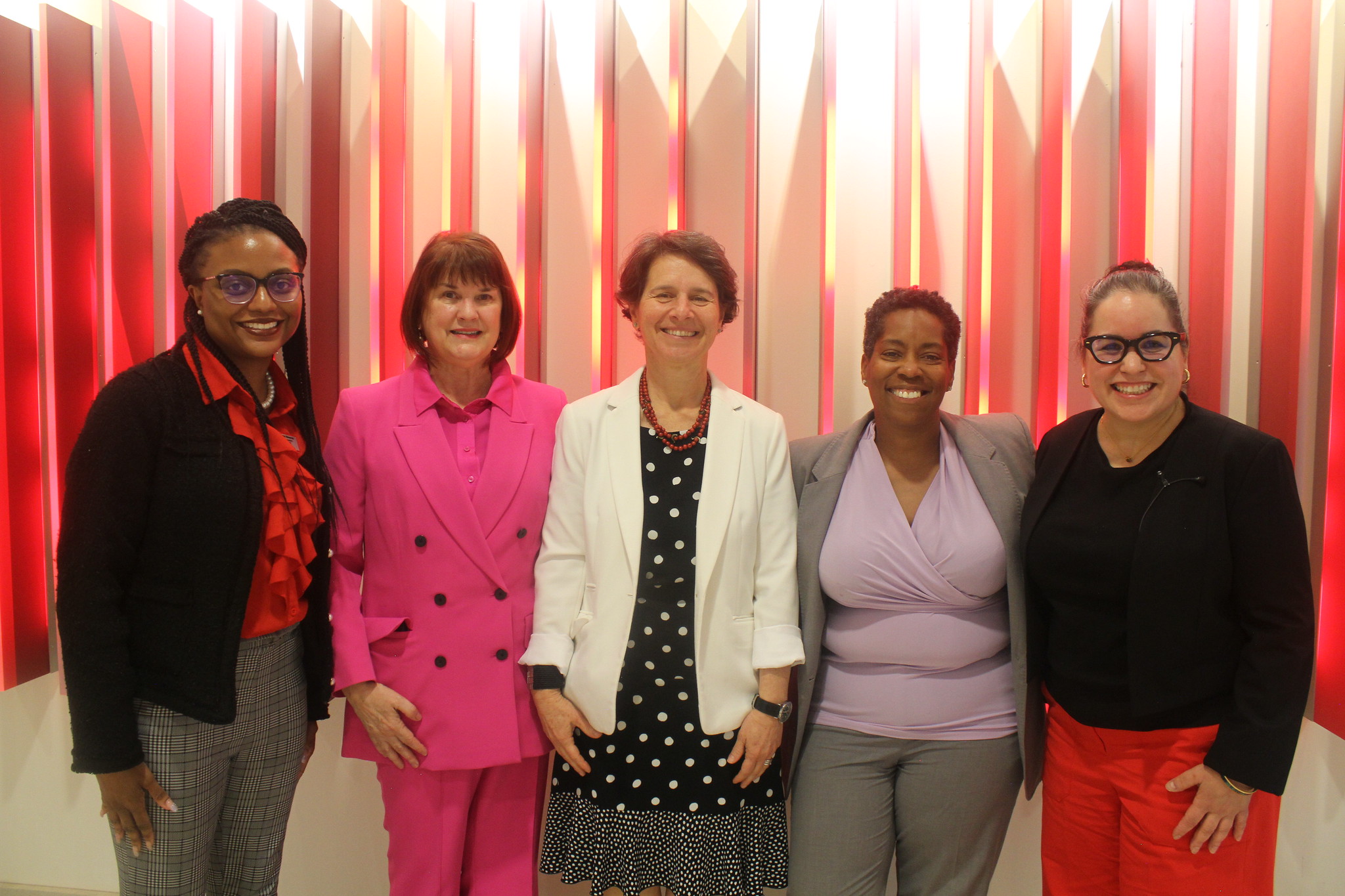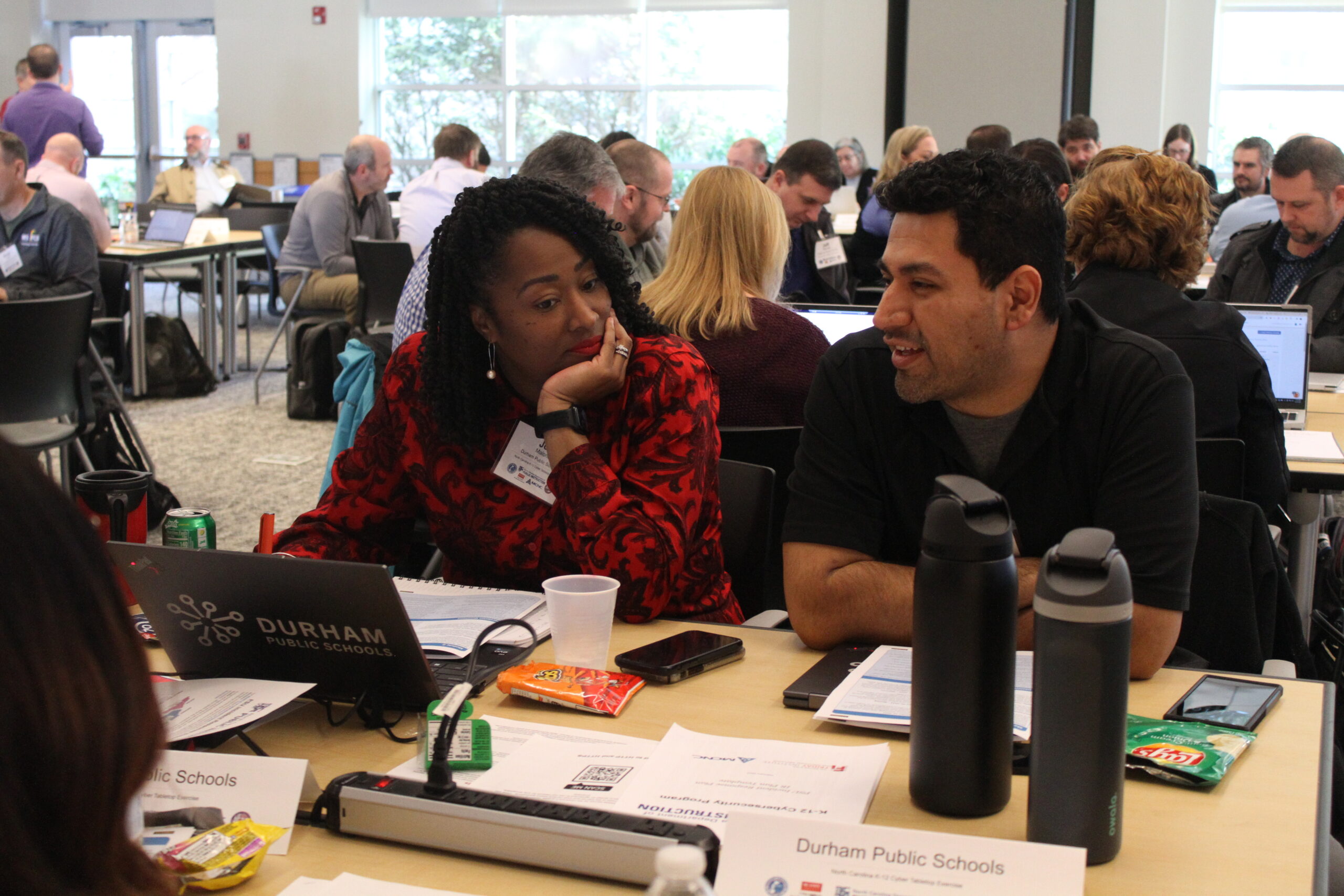Friday Institute Partners with Vance County Schools to Bring Immersive Virtual Reality Technology Into Science Classrooms
Students in Vance County have held a beating human heart in their hands and taken an undersea adventure in the Arctic Ocean without ever leaving their classrooms. With the help of a team of faculty and graduate students from the NC State College of Education and the Friday Institute for Educational Innovation, these students have had the opportunity to conduct scientific investigations in ways that were never possible before with zSpace®, an innovative virtual reality technology found in three schools in the district.
Vance County Schools brought this NC State team to their schools to help them integrate this technology into their science curricula. This year, the Friday Institute team has developed and implemented a variety of science lesson plans using zSpace® for all 8th graders, about 230 students, at two Vance County schools: Vance County Middle School and STEM Early High School. Lessons focused on the heart and circulatory system, the ecology of the Arctic and the evolution of peppered moths in post-industrial England.
zSpace® provides an immersive, interactive, hands-on learning experience with applications in K-12 education and career and technical education in areas from health and medicine to automotive training. The zSpace® laptop, stylus and lightweight glasses allow students to view virtual 3-D models and fully immerse themselves in the content they’re studying.
“zSpace® allows students to conceptualize objects in a 3D environment that you can’t fully understand in a 2D environment,” said Project Lead M. Gail Jones, Ph.D., an NC State College of Education professor of science education, and Friday Institute faculty fellow. “You can explore the valves of a heart and watch them open and close or view the size and scale of bacteria. It’s motivating and allows students to do their own investigations.”
Research shows that simulation-based learning has been successful in providing “self-determined motivation as well as improve learning in general”, according to an article in the Journal of Engineering Education, “Investigating the Effect of 3D Simulation Based Learning on the Motivation and Performance of Engineering Students.” Immersive technologies also keep students engaged and in control of their learning, allow for collaboration and give room to make mistakes and experiment without costly or dangerous results.
“Immersive technologies encourage mistakes and empower students,” Jones said. “It allows students the opportunity to make mistakes, learn from them and recover quickly without the expense or stress of restarting an actual experience.”
Collaborations such as this one that use virtual reality technology advance the field of science while also providing opportunities to engage underrepresented populations in experiencing the wonder of science in ways that extend beyond the limitations of a classroom setting.
A recent zSpace® whitepaper, “Learning in the Digital Age: A Review of the Research on Innovative Technologies,” found that this technology could be especially “vital for students from historically underserved or under-performing groups in science” such as “English language learners who benefit from visual learning, students from diverse cultural backgrounds whose religion or values may prevent them from full participation in science experiences,” and students with attention-based disorders or special needs.
Not only did Vance County Schools students benefit from this learning experience, but so did NC State College of Education graduate students. Working with Jones, graduate students had the opportunity to think about how to use technology to enhance science education in the classroom while building their instructional skills teaching in a rural area.
“Seeing how rural counties integrated technology is exciting,” said Kathryn Rende, a Ph.D. student in science education and one of Jones’ graduate research assistants. “This project has helped me think about teaching in diverse populations and integrating technology in classrooms and in rural counties.”
The graduate students, aided by Jones, gave teachers intensive demonstrations of the technology, one-on-one support and ideas for integrating zSpace® into standards-based science lessons. Vance County teachers were able to grow with this project, too, expanding their science instruction, integrating technology into their lesson plans and becoming experts in the technology. Now, 16 Vance County Schools teachers are credentialed in zSpace®. In November 2019, a group of these teachers presented their lessons at the North Carolina Science Teacher Association conference in Winston-Salem, North Carolina. They shared with other teachers around the state about how they used zSpace® to enhance middle school science instruction in their classrooms.
- Categories:

